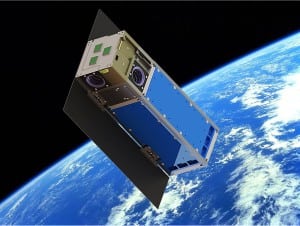Latest News
[Via Satellite 08-25-2015] Commercial weather startup PlanetiQ has opened a science and engineering facility in Boulder, Colo., where the development and manufacture of the first 12 Pyxis sensors will take place. The facility includes a laboratory clean room, and is collocated with Blue Canyon Technologies, which is already working collaboratively with PlanetiQ to develop the initial set of 12 microsatellites scheduled for launch in late 2016 and 2017. PlanetiQ has reached out to the Indian Space Research Organization (ISRO) for launch opportunities using the Polar Satellite Launch Vehicle (PSLV).
Development and testing of the first two Pyxis-RO sensors has been underway since last spring. The satellite-based Pyxis-RO will track Global Navigation Satellite Signals (GNSS) traveling through Earth’s atmosphere and convert them into dense, precise measurements of global temperature, pressure and water vapor using a technique called Radio Occultation (RO). Though not unique to the U.S.’ GPS system this method is commonly referred to as GPS-RO. PlanetiQ’s Pyxis-RO is able to track signals from all four major satellite navigation systems — GPS, Galileo, BeiDou and Glonass. The high sensitivity of the Pyxis-RO allows it to routinely probe deep into the atmosphere down to the lowest 1,000 meters.
Get the latest Via Satellite news!
Subscribe Now